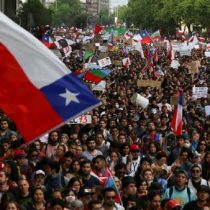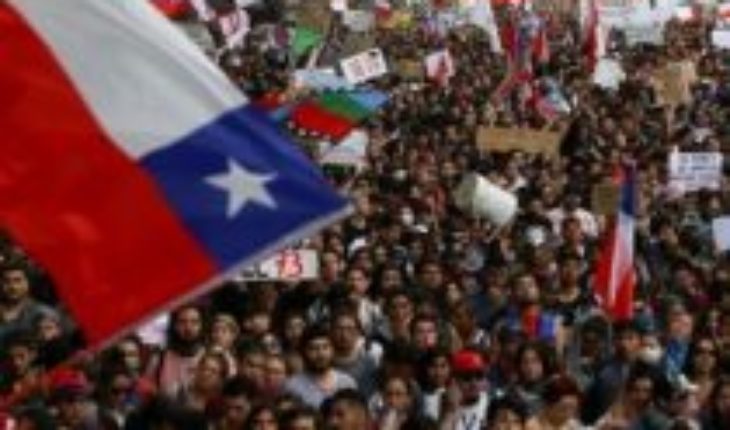
In the midst of the situation we live in, in times of institutional definitions about community life, History offers the possibility of broadening our gaze beyond circumstances and knowing a background to help us understand how some sectors of our society have faced change and the future.
In an attempt to identify and understand some constants in the history of Chile, we will address those situations and motivations implicit after the actions of the subjects who shaped the republic between 1810 and 1833. Pointing out determinants of their policies and institutions, some of them in fact, moods, sensations, impressions, anxieties and feelings motivated by their own and others’ experiences, which often led the elites to proceed in a way inconsistent with republican ideologies and principles that, another persistent notion, have always declared professing.
We will mention in particular the Chilean case, but also referring to other Latin American states, whose situation after 1810 was also considered as a reference to keep in mind when shaping the Chilean.
The situation that each of the republics projected on those who watched them composed a set of experiences, when not warnings, both to move forward and to restrict the application of the republican and liberal idea that was after action and Policies. For, in short, the fear of anarchy and the specter of subversion of order decisively conditioned the course taken by the processes of republican organization led by the ruling sectors.
In the compilation that was intended to account for the republican political organization of the country entitled Sessions of the Legislative Corps of the Republic of Chile. 1811 to 1845, published in 37 volumes by Valentín Letelier between 1887 and 1908, the first document to be reproduced is the “Act of the installation of the first board of government, on September 18, 1810”. The opening paragraph of the brief reads: “In the very noble and loyal city of Santiago de Chile, on September 18, 1810. The illustrious president and lords of the lobby, gathered with all the heads of all corporations, prelates of the religious communities and noble neighborhood of the capital, in the hall of the royal consulate, said: That being the main object of government and of the motherland’s representative body the order, stillness and public tranquility, disturbed remarkably amid the uncertainty about the news of the metropolis, which produced a dangerous divergence in the views of the citizens, had adopted the to reconcile them to a point of unity, convoking them to the majestic congress in which they were gathered, to consult the best defense of the kingdom and common tranquility…”.
The text is an eloquent representation of the concerns and anxieties that stalked the elites during the time of Independence and national organization, and actually throughout Chile’s existence, and reflects not only those who would be the protagonists of political and institutional life, especially the fears and fears that instilled in them, and still provoke, uncertainty, discord, divergence, disorder and public unrest. In reality any disturbance of the established order, anything that might contravene the objectives that were then also set for the government: “Unalterable peace and security permamente”. Purposes that can also be read as a means of securing your interests and privileges.
Chilean elites looked with anguish at political doctrines, ideologies, states of society and forms of political-institutional organization that they considered risky, all triggering their true terror, instability, disorder and anarchy . The evocation that the public men of the time made of events from a past that they described as dangerous, tragic, anarchic or violent, also allow to identify the threats that frightened them as they lifted the republic and, in addition, explain the solution they devised to neutralize them.
Threats to the homeland and freedom
From 1810 to about 1823, the year of the abdication of Bernardo O’Higgins and the beginning of a succession of weak governments, constantly threatened by the asonadas, national independence was consummated, a process that developed on the battlefield. also in the political sphere created by the situation that affected the Spanish monarchy from 1808.
In that span, public order and quiet were some of the essential concerns, as well as uncertainty, passions, intrigue, and what was called “dangerous” divergence of opinions motivated by measures taken to address the Situation. All appreciated as threats to freedom, homeland, independence, the cause of America, public health, the state, the republic, the government and the political existence of the country, including the nation, which are the new political realities and states the root of the separation from Spain.
The agents identified as possible causes of evil are seditious, discontents, factions, counter-revolutionarys, bayonets and military force, all of which could lead to oppression, tyranny, social upheavals, crisis, even civil war.
Panic for anarchy
After O’Higgins’s abrupt departure from power in January 1823, it was the governing board that assumed command that drew attention to “the misfortunes that threaten the homeland,” among them, and the main one, “disunity.” Then it was that concepts that alluded to the “indivisible republic”, the risk of its “dissolution”, the “dismemberment” and anarchy, as well as the most feared of evils, the separation of one or more provinces, began to circulate with increasing frequency. The same that had led the opposition to the hero of Independence, forcing him to resign, starting a stage that would last until the end of the 1820s in which governments and warlords, political projects and institutions, mostly weak and impossible, even chimeric.
All in the midst of a situation of political, economic and social crisis, instability, power vacuum, disorder and unrest. Consequences of the independence process, which, in the political sphere, was reflected in a struggle between various political factions supported by military forces and, always, in representation of the “general interest” and in defense of freedom and order.
Announcements of imminent dangers threatening the homeland, people and property encouraged the emergence, from at least 1826 onwards, of calls to grant extraordinary powers to the Executive to quell anarchy, to avoid dangerous innovations, combating pilgrim ideas, avoiding intrigue and quelling passions.
America, a bad example
Among those who promoted the policy changes was those who would take over as leader of the conservative forces in Chile in 1829, Diego Portales. His experience as a trader in Lima in the early 1820s, amid the unrest motivated by political alternatives, also explains his uncompromising action as an authority years later. The “terrible man of facts,” as he was called, was undoubtedly affected by what Peruvian historiography has considered a time of “crisis,” militarism and caudillism, a devastated society that suffered years of disorder, war, “political volatility” and collapse caused by the war associated with Independence.
This experience led Portales to write to his partner on February 10, 1822: “The situation here is complicated and the Limeños revolutionized by the latest events. As I fear the overflow of these disgruntled people from all that is good, bad and regular, I asked the prefect for some soldiers to shelter the house; and the big fuck refused saying he lacked strength. I hope that this effervescence will pass thanks to the governmental measures issued yesterday. The authorities are weak because they believe that democracy is the license.” Concepts that show their choice by the rigorous order and authoritarianism that makes it possible.
Peru was not the only negative representation used by the Chilean organizers. Mexico, too, and, in fact, any case that endorsed its conceptions of what national political institutionality should be. In 1827, in a discussion that later only resolved by arms, Mexico was referred as a people, along with Guatemala, “in dreadful anarchy”, and where “the citizen does not walk the streets safely”.
Thus, it should come as no surprise that the forces that Portales brought together proclaimed the urgency of taking strong measures to restore public peace of mind, countering the force of weapons in an ever-changing attitude, preserving unity and order of the State, to deal with uncertainty and sedition, avoid the ruin of the homeland and restore public tranquility and peace, and also to circumvent an internal conflagration which, however, was as inevitable.
Restoring order
In the midst of a political, economic, social and institutional crisis that virtually all actors denounced, the country rushed into a civil war after “eighteen years of sacrifice,” as the Provisional Governing Board wrote in January 1830 in a addressed to the mayors or governors of the provinces, calling them, inviting them, to join the initiatives of the provisional government aimed at overcoming the crisis and achieving “the restoration of the order and prosperity of the nation”.
Representation of the winners regarding what happened in Chybrid then, but also a reflection of the longing for stability, order and authority, the text recalled that the majesty of the law and the validity of the Constitution were the most precious good conquered by peoples and citizens, in particular, because it guaranteed their Freedom. Achievement that, however, had been threatened by the existence of a power, which had been fought and defeated, “at the same time weak and impotent”, the result of “tracking intrigues”, which not only abused its authority, but endangered the republic and almost caused the “ruin of the state.”
Arguing in a way that would since then be typical of those who usurp power in Chile, the new authorities alluded in their invocation to the danger in which the republic was, which is why they had to act, to counter the evils and blows cruel ones that threatened her. Criticizing the political forms and excesses that had given rise to freedom, recalling those who were told by the law, they exposed the abuses, violence and illegalities perpetrated by the one they describe as a minority, i.e. the authorities constitutionally elected. All sources of misfortune for “the peoples”, who were “put in the harsh but inevitable alternative of claiming their rights at the expense of the last sacrifices, or buying their stillness at the same price of their absolute degradation, the loss of their freedoms and their laws and their subjection to liberticidal aspirations and whims.”
Noting the Governing Board that, in the face of the extraordinary ills caused by what were proclaimed “constitutionalists”, such as the fracture of the republic and the lack of a legal order and its consequence, “the lack of a general government”, the new regime did not have rather than applying extraordinary remedies to “get the state out of its acephalance and give it a general government,” called on the provinces to join the task of “restoring the nation’s order and prosperity,” taking “prompt measures that restore Constitution of its observance”.
The postponement of the future
Among the measures implemented by the victors of 1830, which included persecution and violence against the deposed authorities, was to convene a convention to reform the Constitution. Eloquent lyquerism is that “in all past administrations we have regarded physical force as the main support of governments”, as well as that calls be made to establish a “solid government” and an institutionality “without risk of threatening peace of mind.” Especially if it were considered, the conventional warned, the ease with which anarchy could be present.
Founded on what one called “the spirit of order that animates the republic,” they proceeded to develop a new Constitution, that of 1833, which, based on the denove experience of previous years, “did not contain principles of frenzy that the license respected offense from the justice and with the waning of true freedom,” as was written in the official press once the new Fundamental Charter has been sworn in.
The urgency of establishing a sound administration was one of the main objectives of constituents, but also to ensure the political and social pre-eminence of the conservative elite.
Thus, with the excuse of avoiding the use of the people by the “agitators and malicious,” he assured himself, “a dam has been fabricated against the torrent of party shocks and extinguishing the ardor of a immoderate freedom from which shock should result precisely a dreadful anarchy.”
With the new constitutional norm, authoritarian, presidential, conservative and aristocratic, which made the head of state an omnimode power, true monarch in republican forms, whose powers diluted the separation of powers, the elites conservatives ended up giving decisive form to the republic, maintaining the dominance of those who from the Colony exercised social power and concentrated economic power. His action not only condened the past, he also shaped the future, trying to postpone his advent by restricting freedom.
A future that from 1810 onwards, and even in the midst of the achievements achieved, such as Independence, the elite often threatened, especially because of the fear of anarchy to which he believed the excesses of freedom led. An apprehension that, in Chile’s trajectory, more than once, has been shared by large sectors of society.
The content poured into this opinion column is the sole responsibility of its author, and does not necessarily reflect the editorial line or position of El Mostrador.





